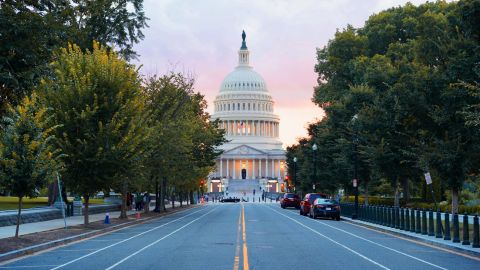NIH continues to investigate scientists’ foreign ties
Michael Lauer, deputy director for extramural research at the National Institutes of Health, earlier this month gave a public presentation about the agency’s efforts to identify scientists with undisclosed ties to foreign governments. In his presentation on June 12, he reported that the NIH has investigated at least 189 scientists and found 70% of them in violation of NIH disclosure policies.
Lauer's presentation, which you can download here, was for a working group of the NIH Advisory Committee to the Director on June 12. That panel, the Working Group on Foreign Influences on Research Integrity, was established two years ago to identify the best approaches for the agency and universities to ensure research security, facilitate collaboration with scientists across the globe, and safeguard American intellectual property. NIH's investigations began around the same time.
Since then, the NIH has been investigating hundreds of scientists in an attempt to root out those who are collaborating with foreign governments without informing the NIH. High-profile scientists, such as Charles Lieber of Harvard University, have been indicted on charges related to foreign influences to research integrity. Several have pleaded guilty to tax violations and other crimes.
Lauer said that the NIH has investigated 189 scientists at 87 institutions suspected of failing to disclose financial ties to foreign governments. Of those, 54 have either resigned or been fired.
| Finding | Number (n = 189) | Percentage |
|---|---|---|
| Undisclosed foreign grant | 133 | 70% |
| Undisclosed talents award | 102 | 54% |
| Undisclosed foreign company | 17 | 9% |
| Peer review violation | 9 | 5% |
| Any NIH violation | 154 | 81% |
| Violation of institutional rules | 70 | 37% |
| Termination or resignation | 54 | 29% |
| Institutional removal from NIH system | 77 | 41% |
The NIH has focused on addressing three primary concerns:
- Failure to disclose substantial foreign resources.
- Failure to disclose significant foreign financial conflict of interests and/or patents.
- Peer review violations.
In 93% of the 189 cases, the funding being scrutinized has come from China. The vast majority of scientists under investigation are Asian men in their 50s.
Lauer made the case, with data, that the NIH is rarely wrong about whether an NIH-funded scientist has violated its policies on disclosure.
Frank Wu, a lawyer and president of Queen’s College, said that there is more to these numbers.
“Are the absolute numbers accurate? I have no doubt they are. The question is what is the denominator, and how do you control it? You can easily cause the number to go upward by eliminating those cases that were closed out early on.”
Lauer said there are an additional 399 scientists "of possible concern" to the NIH (separate from the 189 already investigated and discussed above) and the Federal Bureau of Investigation has looked into more than a third of them.
These investigations come amid growing concerns about China’s rising prominence in scientific research and development. Lauer said that 82% of those scientists being investigated are Asian and that Asians are targeted by China’s talent-recruitment programs.
Members of Congress and the Trump administration are looking to limit these threats in various ways, such as blocking student visas for Chinese graduate students and others. The American Society for Biochemistry and Molecular Biology has released a number of statements condemning such moves to restrict foreign workers.
Related stories
When relations with China worsen, science suffers: Legislation and a presidential proclamation aim to restrict student and research visas for Chinese graduate students.
Ex-Emory neuroscientist pleads guilty; fired Cleveland Clinic geneticist arrested: Department of Justice continues crackdown on scientists who fail to disclose ties to China’s Thousand Talents Program.
Protecting American science and its international collaborators: Lawyer and professor Frank Wu spoke about research integrity, legal cases against scientists and foreign influences on federally funded research.
FIRM Act would require some foreign scientists to register as foreign agents: If enacted, this legislation would affect some foreign scientists collaborating with U.S. scientists on federally funded research.
Lawmakers press FBI and NIH on research-integrity investigations: U.S. Reps. Jamie Raskin, D-Md., and Judy Chu, D-Calif., sent the NIH and FBI letters asking about the agencies’ investigations into scientists with ties to China.
Enjoy reading ASBMB Today?
Become a member to receive the print edition four times a year and the digital edition monthly.
Learn moreGet the latest from ASBMB Today
Enter your email address, and we’ll send you a weekly email with recent articles, interviews and more.
Latest in Policy
Policy highlights or most popular articles

Supporting science through advocacy and community building
ASBMB calls on scientists to take action as funding cuts and policy shifts threaten the U.S. research enterprise, emphasizing the power of community advocacy and persistence in protecting the future of science.

Seven steps to advocating in your home state
Find out how to schedule, prepare for and conduct a productive district office meeting to communicate the importance of fundamental scientific research funding to your representatives.

ASBMB members call for funding and agency support amidst uncertainty
In 60 meetings on Capitol Hill, scientists urge legislators to reaffirm support for scientific innovation

Embrace your neurodivergence and flourish in college
This guide offers practical advice on setting yourself up for success — learn how to leverage campus resources, work with professors and embrace your strengths.

ASBMB honors Lawrence Tabak with public service award
He will deliver prerecorded remarks at the 2025 ASBMB Annual Meeting in Chicago.

Summer internships in an unpredictable funding environment
With the National Institutes of Health and other institutions canceling summer programs, many students are left scrambling for alternatives. If your program has been canceled or delayed, consider applying for other opportunities or taking a course.

